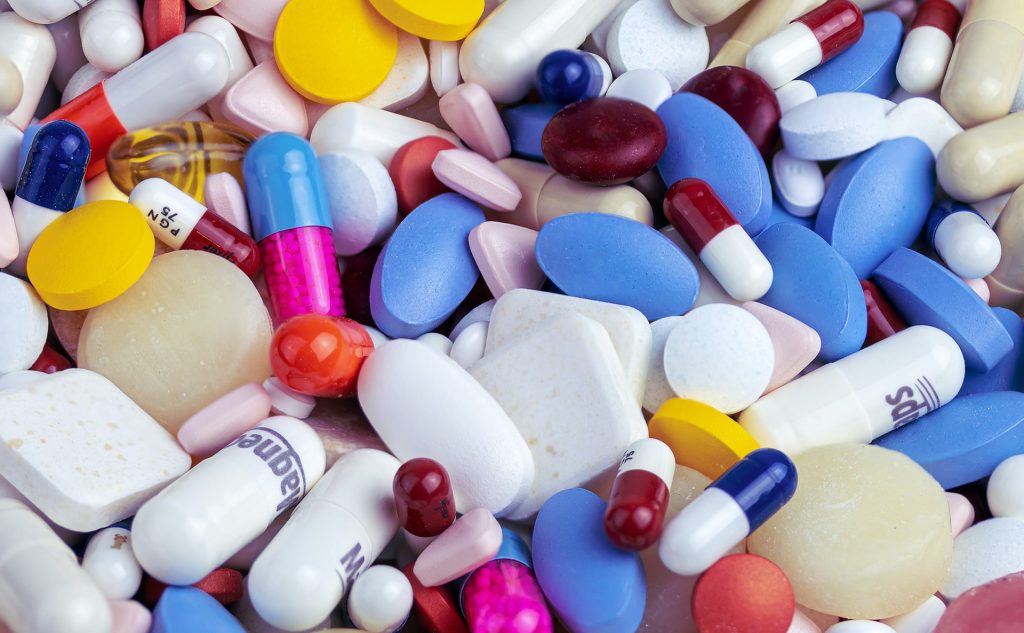Some Meds May be Raising Blood Pressure Unnecessarily

New research has found that nearly a fifth of adults with high blood pressure are taking a drug that may be raising their blood pressure further.
The findings presented at the American College of Cardiology’s 70th Annual Scientific Session. The results highlight the need for patients to regularly review all of the medications they take with their care team, including over-the counter drugs, to ensure none might interfere with blood pressure lowering efforts.
The research found that three most common culprits were antidepressants; nonsteroidal anti-inflammatory drugs (NSAIDs) that include ibuprofen and naproxen; and oral steroids used to treat conditions such as gout, lupus, rheumatoid arthritis or after an organ transplant. These drugs were reported by 9%, 7% and 2% of participants, respectively. Other drugs associated with blood pressure elevation included antipsychotics, certain oral contraceptives and popular decongestants.
Researchers said these findings raise concerns, especially as nearly half of Americans diagnosed with high blood pressure do not have it sufficiently controlled. Dr. Vitarello explained the goal blood pressure for hypertension patients is a reading of less than 130 mmHg over 80 mmHg, based on the 2017 American College of Cardiology/American Heart Association (ACC/AHA) Guideline for the Prevention, Detection, Evaluation, and Management of High Blood Pressure in Adults.
“These are medications that we commonly take—both over-the-counter and prescribed medications—that may have the unintended side effect of raising blood pressure and could have adverse effects on our heart health,” said John Vitarello, MD, an internal medicine resident at Beth Israel Deaconess Medical Center in Boston and the study’s lead author. “We know that high blood pressure leads to cardiovascular disease, stroke and death and even small increases in blood pressure can have meaningful impacts on cardiovascular disease. Based on our findings, we need to be more aware of polypharmacy (the use of multiple medications by a single patient) in older adults who also have the highest burden of high blood pressure.”
The study examined data from 27 599 participants in the National Health and Nutrition Examination Survey (NHANES) between 2009 and 2018. About half of the participants (49%) had hypertension (average age 55 years, 48% female), defined in the study as a blood pressure reading of ≥ 130 mmHg (systolic) or ≥80 mmHg (diastolic) or ever having been told they have high blood pressure. Researchers identified medications associated with blood pressure elevation based on those listed in the ACC/AHA guideline and examined use of these medications by hypertensive adults
Among hypertensive participants, 19% reported using one or more blood pressure raising medications and 4% reported using multiple. Nearly one-quarter (24%) of women with high blood pressure reported using a blood pressure raising medication compared with 14% of men. Older adults were more likely to be using blood pressure raising medications than younger adults (19% of participants over age 65 vs. 18% of participants under age 65).
Vitarello said the findings suggest that there may be opportunities to treat hypertension by switching out the drugs raising blood pressure rather than adding more anti-hypertensives. Some drugs may have the same benefit but impact on blood pressure less. Still, some patients may not have another medication option, so monitoring and talking to their care team is advised over stopping medications.
The researchers also estimated that if half of hypertensive US adults taking blood pressure raising drugs were to discontinue one of them, 560 000 to 2.2 million patients could be able to reach blood pressure goals without additional drugs. But Vitarello cautioned that this is only a preliminary analysis, and individual responses to stopping blood pressure drugs are variable, so the real-world benefit and tradeoffs of stopping these medications need to be further studied.
The study is limited in that it relies on participants’ self-report of having high blood pressure and an accurate accounting of all the medications they take. The study was funded by the National Institute on Aging and an ACC Fellows Career Development Award.
Source: American College of Cardiology

